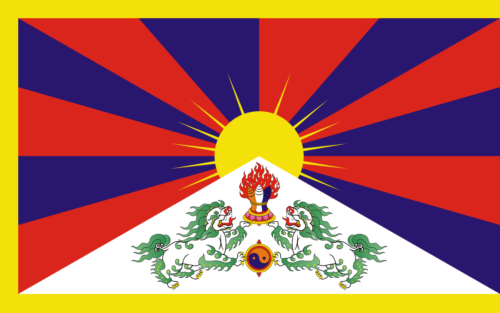Collectivism V Individuation
You are in an institution and there are many institutions around you. We all exist in national institutions and are surrounded by institutions within our nation. Institutions exist because of individuals, and yet sometimes become more important in the minds of individuals than other individuals. When institutions and institutional pursuits become more important than individuals a psychic sickness reveals itself in societal symptoms of monolithic repression up to and including overt war.
George Orwell termed the psychic illness of overbearing institutional war on individuals as oligarchical collectivism. Carl Jung called it totalitarian psychosis. The Gnostics referred to those afflicted with institutional servitude over individuals as being victims of archontic infection. The Native Americans conceptualized those overtaken by this perspective as The Two-Hearts or Two-Hearted, one of the individual and another of a phantom, of an institution, or institutional idea. And various individuals now call it communism while others in the past and presently might call it capitalism. And so whatever ism you perceive the complex as, whatever dialect it appears as, the captivating language is the same, and the collectivism is the constant.
The Exoteric Battle: Collectivist Institutions Versus Individual Liberty
It is best to understand the exoteric of the oligarchical collectivist situation first beginning with the preliminary above. This is a global and near timeless predicament. And it will be an endless reality if we do not observe and address it. Perhaps an initial part of separating observations and will to take action is the numerous isms used to label the situation of institutional repression of individuals. And that it is so variable, separated by national constructs.
The best way to comprehend how institutions are is not via their labels which tick partial minded, partisans to hold wholly hypocritical double think ideas. The best way to comprehend how institutions are in relation to individuals is understanding that all institutions are oligarchical. The best way to picture oligarchical institutions is by way of imagining a pyramid system with the few at the top. The steeper the pyramid, the more repressive the institution. The steepness of the pyramid can be understood by how much liberty the individuals have in that system. Do individuals have liberty to gain access to information and share information? What institutional, national and otherwise, are supporting and promoting individual liberty, like the liberty promoted in The First Amendment?
The steeper the pyramid the more repressive the institution. Some institutional formats are more square or circular, being fair and encompassing, but most are triangular or pyramidal.
The Internal and External
History can be understood as interplay between institutions and individuals. Institutions are as tools of those who seek to control situations, especially individuals seeking to individuate. There are ongoing battles of these oppositional forces within nations and between nations. The battles are sometimes overt and other times covert. Individuals might be repressed by their own home government in some collectivist design while their government may be repressive to others outside of the nation as well. Russia is currently the most obvious example of an oligarchical collectivist nation under a totalitarian psychosis where there is internal repression and external repression most particularly toward their neighbor and historical progenitor, Ukraine.
Do institutions restrict and enslave their citizens like North Korea, China, and Russia? Do institutions enslave citizens of other nations, like Russia is attempting to do in Ukraine?
Sadly, mostly there are many negative institutions and rarely positive institutions vis--vis their support of individuation. It is primarily a spectrum encompassing those institutions against individuation spanning across to those institutions ambivalent to it, rather than supportive of it. After individual liberty comes the possibility of individual individuation, self-development and then societal development based on it.
(Note: You can view every article as one long page if you sign up as an Advocate Member, or higher).






